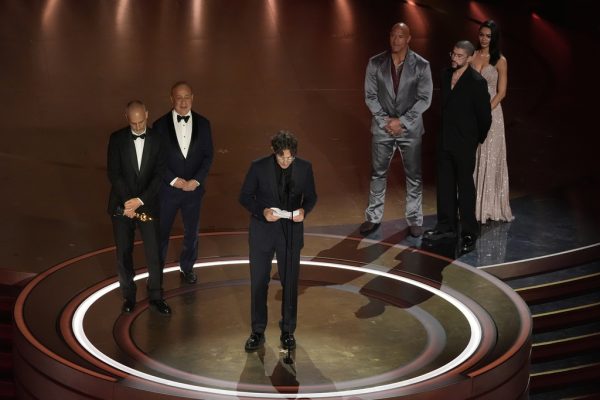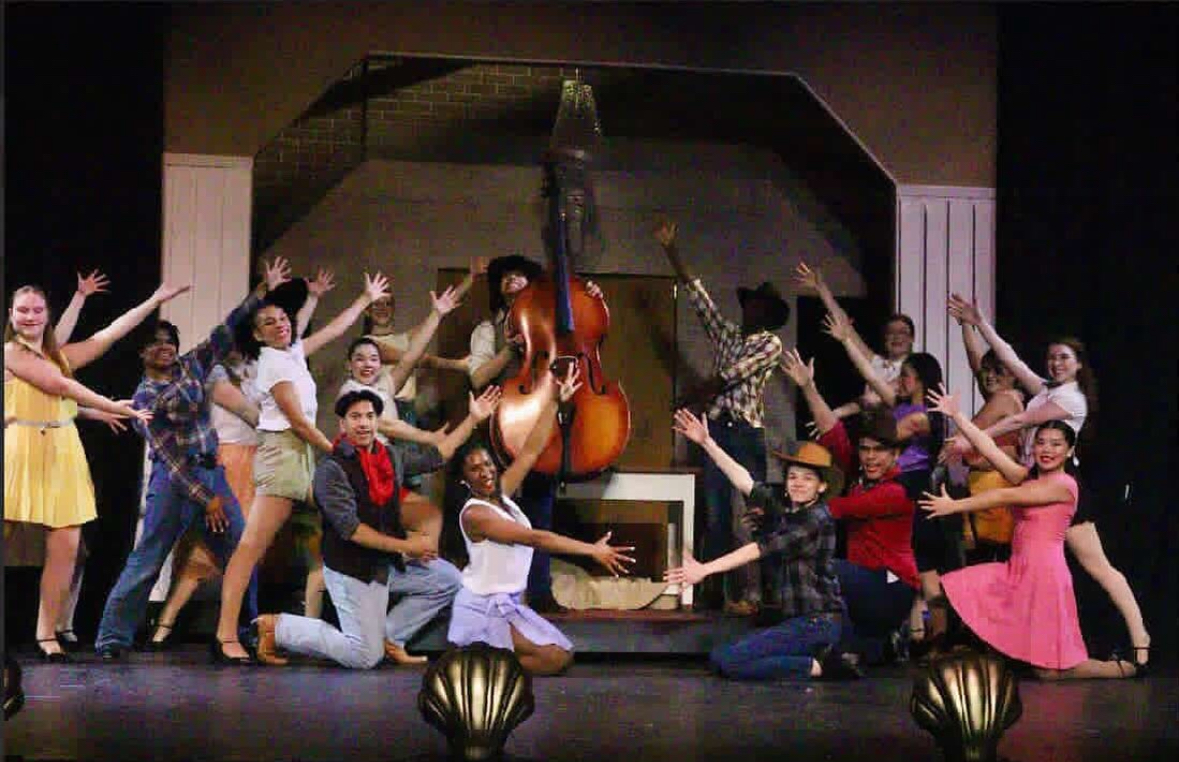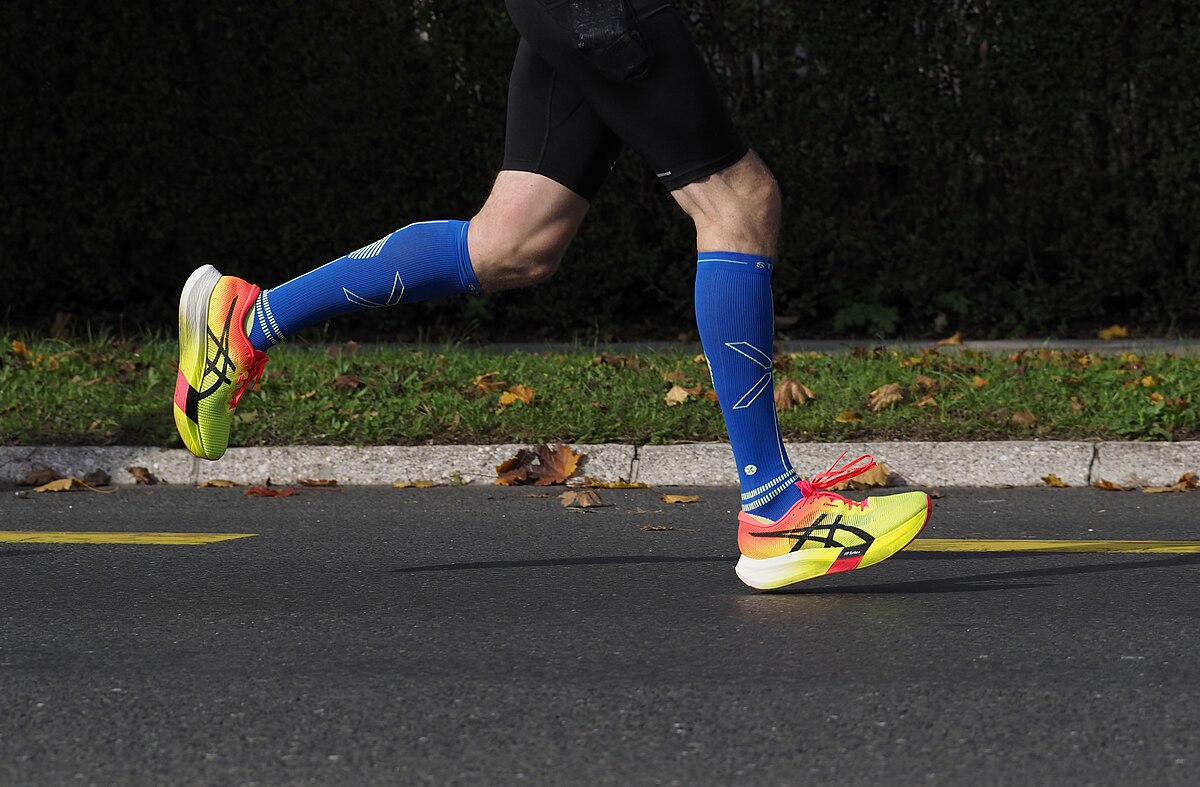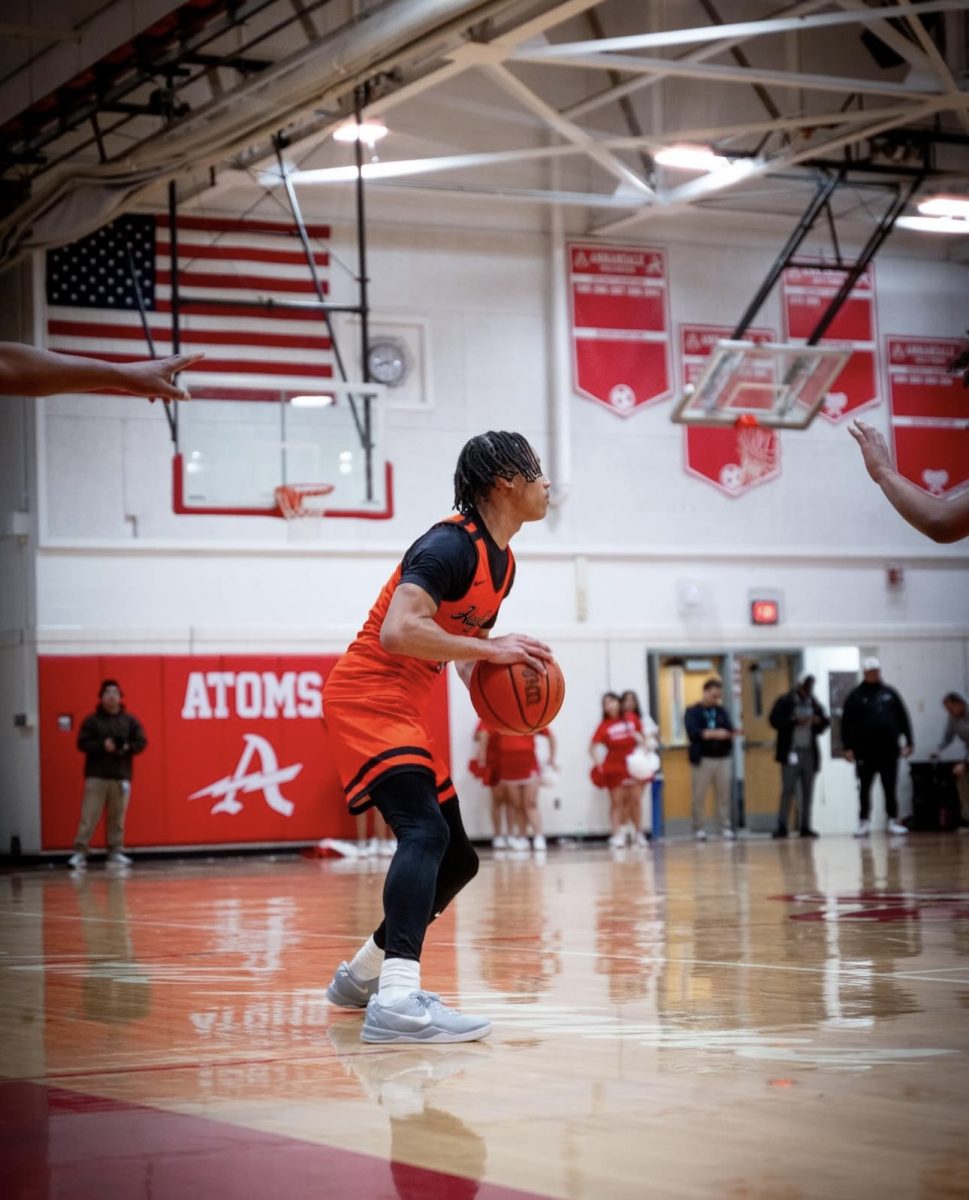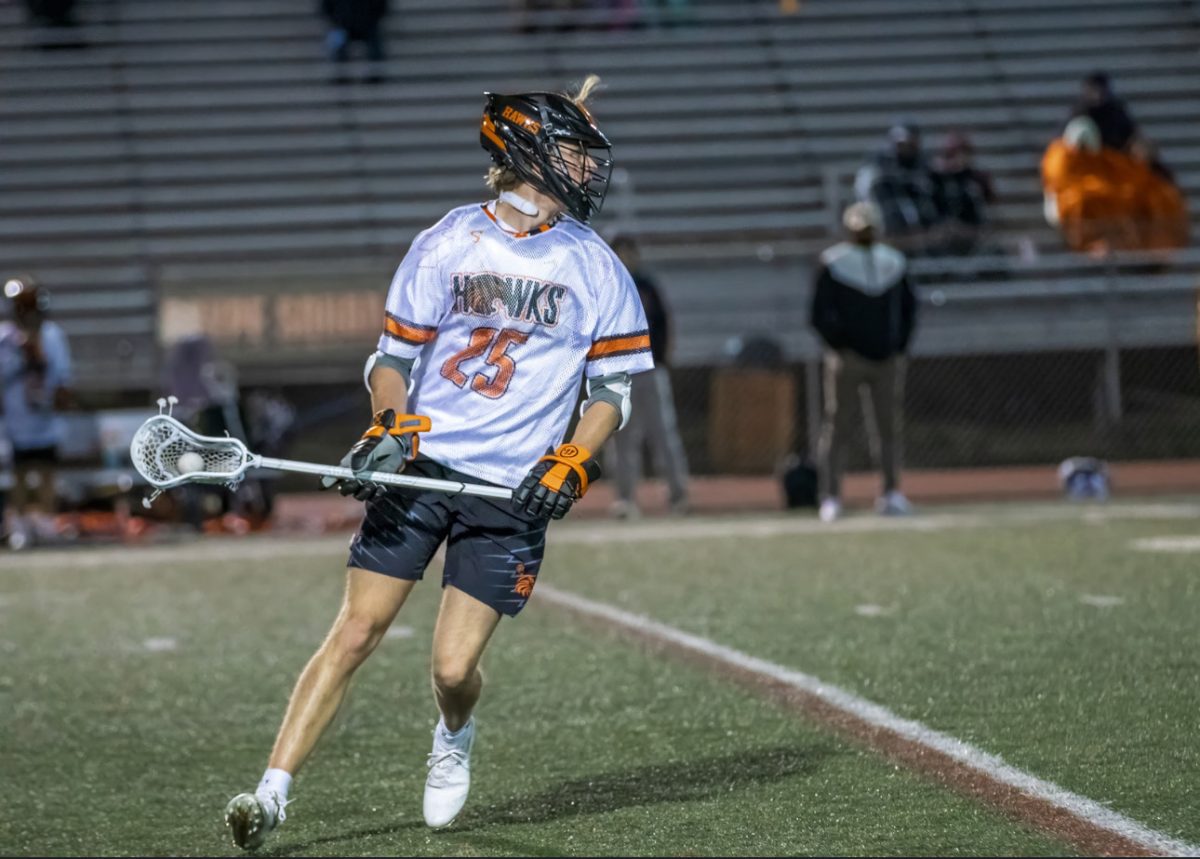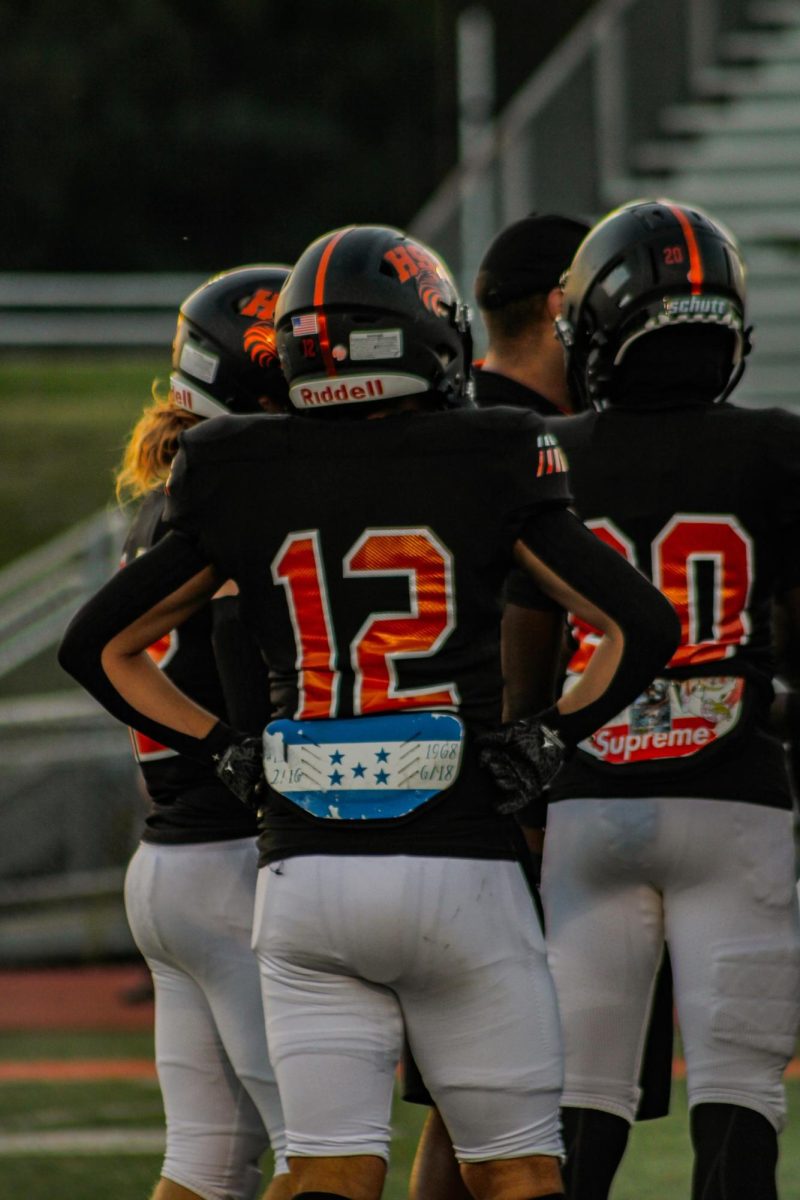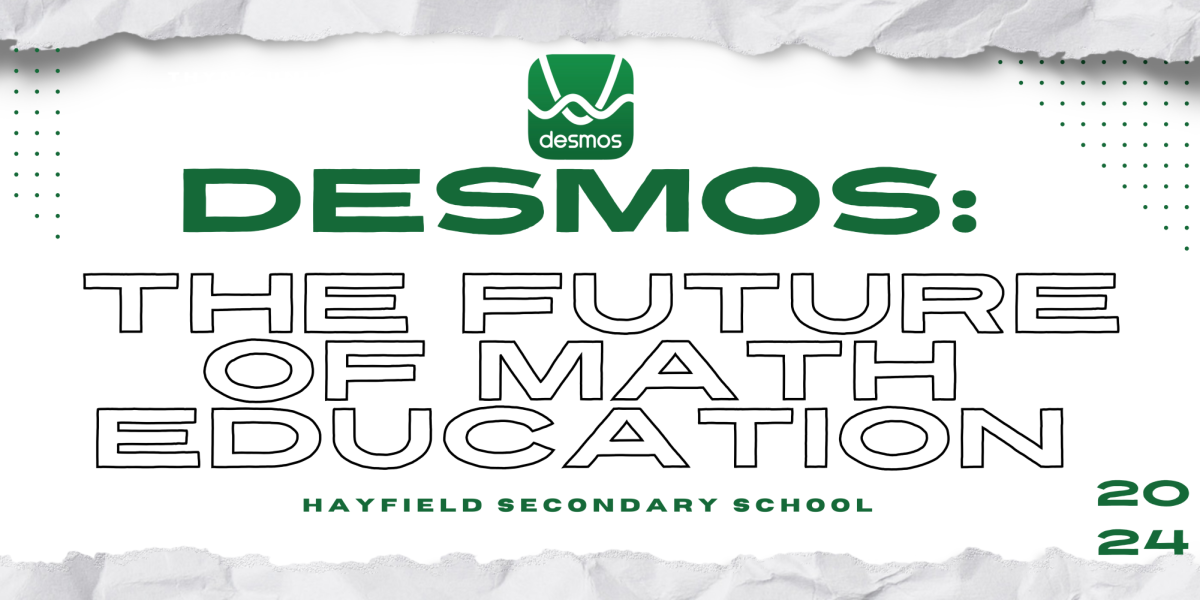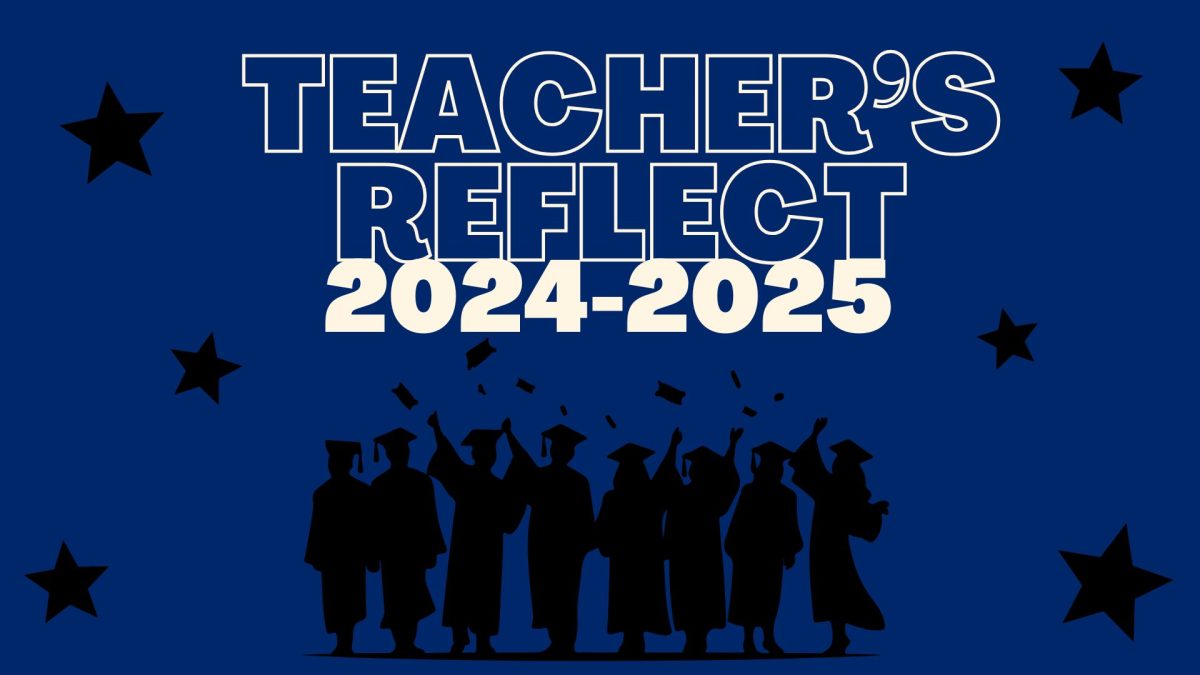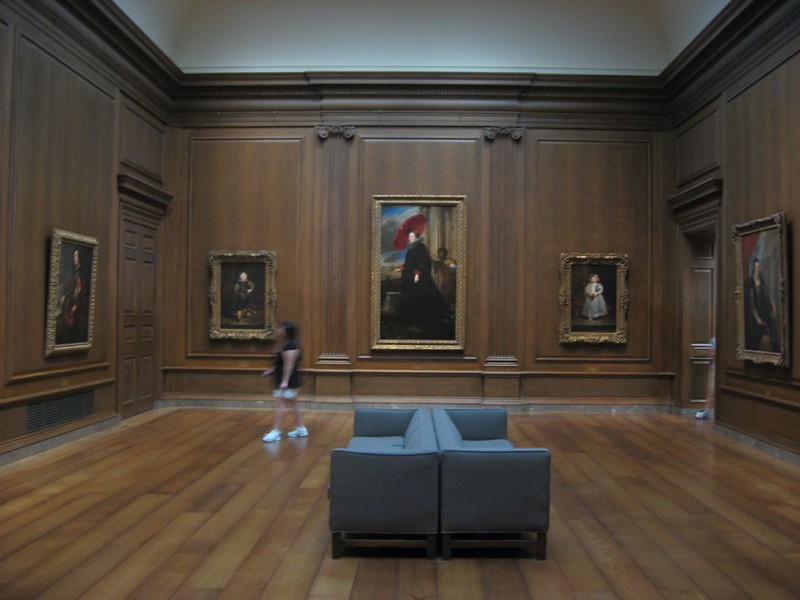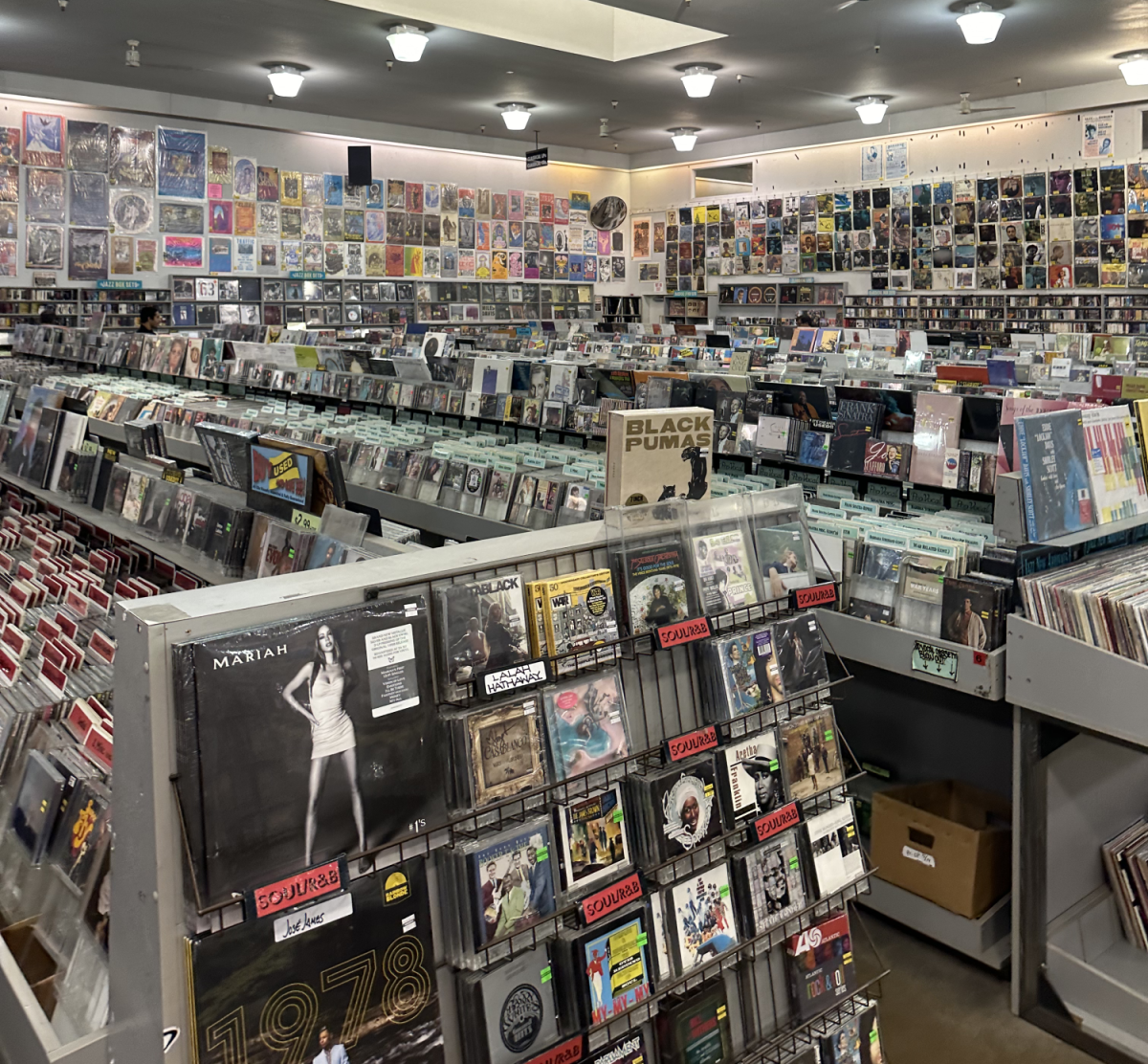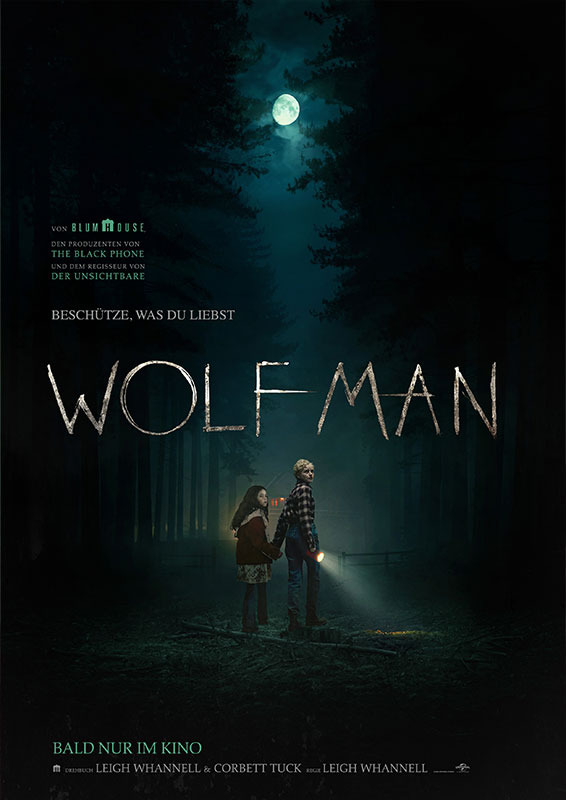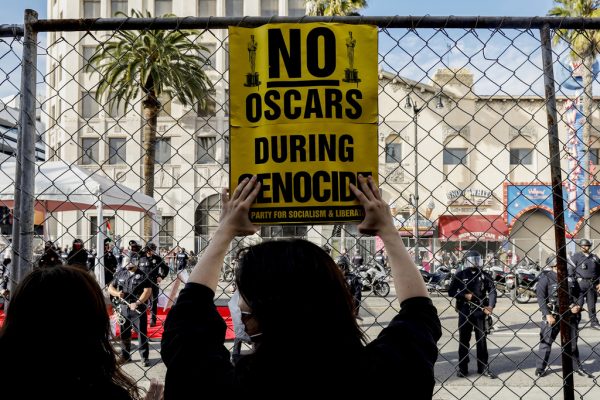
Ending this year’s award season, the Dolby Theater held the 96th Academy Awards, celebrating the myriad of films and variety of nominees chosen for the opportunity to win an Oscar. Yet, standing directly outside of the star-studded building were hundreds of people waiting not for a glimpse into the celebrity world, but to disrupt the privileged, wealthy upper echelons and bring light to the people of Palestine.
“[Advocators have] tried every single place [and] everywhere but they’re getting ignored,” senior Sura Alchuraikhi said. “Paparazzi is [present at The Oscars].”
Sunday evening, March 10, 2024, protesters gathered to condemn Hollywood’s complacency with the attacks on Gaza. Many attendees were stuck in traffic preventing the broadcast from occurring on schedule. Signs reading “No awards for genocide” and “Ceasefire Now!” littered the crowds blocking the flow of traffic. In turn, the Los Angeles Police Department issued a dispersal order on the infamous Sunset Boulevard for “Unlawful Assembly.” With a coalition of organizations, the protests summarized the finite thoughts of many with Hollywood’s biggest stars: To utilize their platform for a call to action in a permanent ceasefire.
Much of the event was streamed via TikTok and other social media platforms, where it was hard for the algorithm to offer up content of celebrities at the Oscars without being paired with videos of the protesters outside. On the official Oscars TikTok page, a multitude of comment sections were flooded with efforts to highlight Palestine.

This advocacy also reached onto the red carpet itself, displayed across the gowns and suits of stars attending that night. Billie Eilish, Mark Ruffalo, and many other celebrities adorned themselves with red pins in solidarity for Artists4Ceasefire.
Senior Rania Baamrani said, “Although a great statement with so many other celebrities trying to avoid the conflict, [it’s] kind of redundant.”
Baamrani would later reference the black square posts on Instagram during the Black Lives Matter movement, saying someone had found its similarity to that type of advocacy, and Baamrani “couldn’t agree more.”
“A lot of the artists who have put it on have put in no effort outside of the pins to talk about Palestine,” Baamrani said. “What Milo Machado-Graner and Swann did by using the Palestinian flag rather than the [Artists4Ceasefire] pin doesn’t make any sort of statement of support, [but was] better executed.”
It was, however, the winning director for Best International Film who’d been one of the only people to directly acknowledge Gaza on live television. “The Zone of Interest” is a Holocaust-set film exploring the mundanity of family life while atrocities occur next door. Director Jonathan Glazer recognized the parallels between the film and events unfolding in current times, explaining the meaning of the film “not to look [at] what we did then, but look [at] what we do now.” His speech continues to directly identify the “victims on October the seventh in Israel or the attack on Gaza,” simply asking “How do we resist?”
